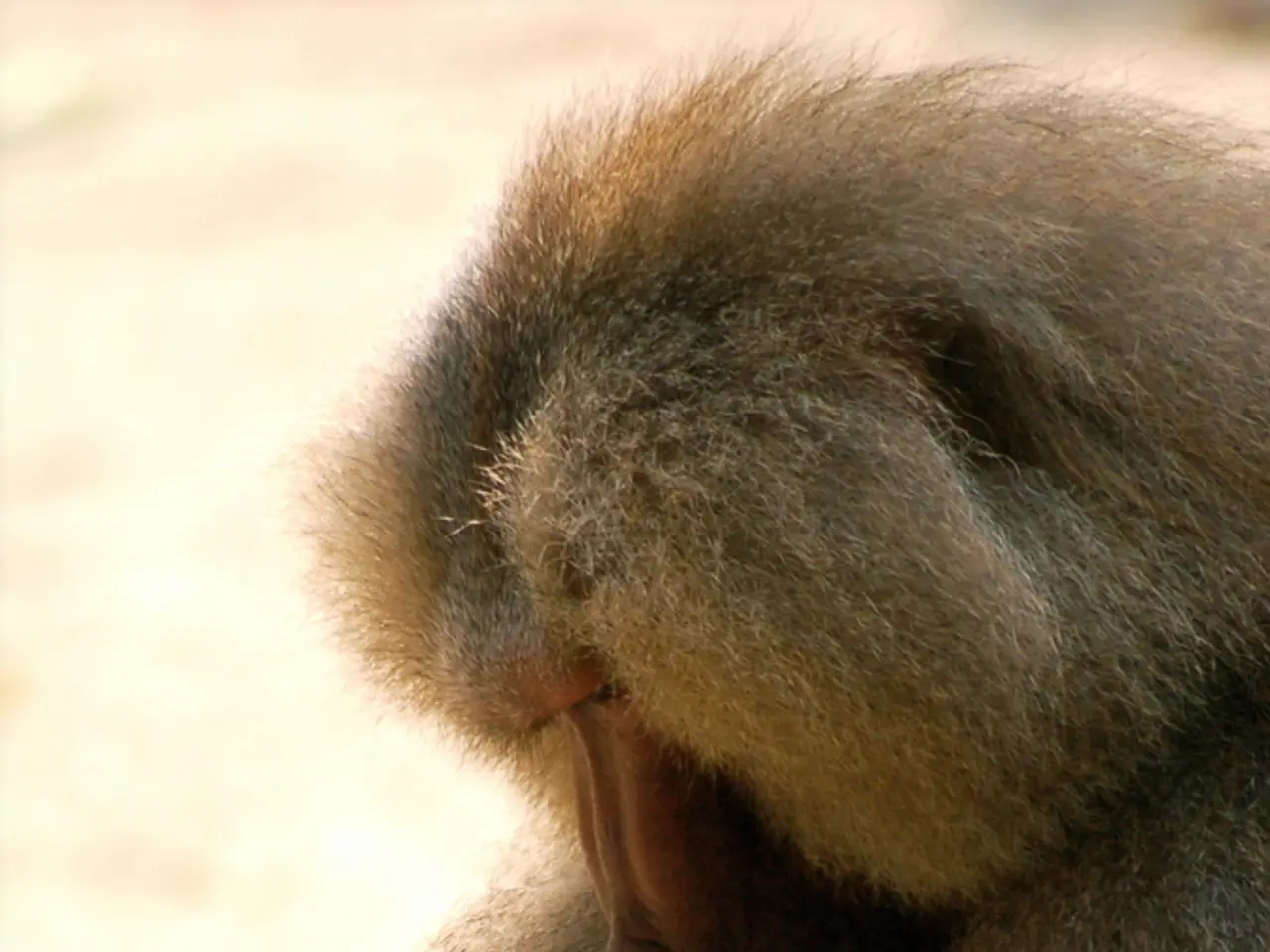Orangutans Rest After a Strenuous Night, Similar to Humans
In a groundbreaking study published in Current Biology, researchers have delved into the sleep habits of wild orangutans, shedding light on the restorative effects of naps for these primates and providing insights into the evolution of sleep in various species.
Led by co-author Meg Crofoot, the study reveals that orangutans, like humans, may use naps to reset physiologically and cognitively after a poor night's sleep. The research team, based at the University of Chicago, tracked and studied the sleep patterns of wild orangutans primarily by observing their night nests and measuring periods of silence associated with sleep.
The key method involved recording the long stretches of silence between the time orangutans finish building their nests and the time they leave them in the morning. This silent interval, termed the “sleep period,” averages nearly 13 hours and serves as a strong indicator of actual sleep.
Field teams followed individual orangutans throughout the day and evening, watching when they began nest building (around 10 minutes spent weaving branches and leaves for comfort) and noting when they retired quietly to their nests. Orangutans usually enter their nests shortly before sunset and leave just after sunrise. Researchers also tracked daytime naps by observing shorter, simpler nests constructed for resting during the day.
To ensure detailed monitoring, multiple observers followed each orangutan, using binoculars to watch their behavior in the treetops. They recorded times spent quietly lying still in nests to approximate sleep and nap durations.
This approach has revealed interesting behavioral insights, such as orangutans sacrificing sleep to socialize when near others, and making up lost sleep with longer naps during the day, similar to human behavior after a poor night’s rest.
The study also investigated why animals, including orangutans, spend large portions of their lives in an unconscious state. Among the observed orangutans, the Suaq orangutans built the highest number of nests during the day and displayed the highest amount of cognitively demanding behaviors. This high daytime nest use among Suaq orangutans may be linked to their need for high-quality naps to meet their cognitive demands, or their cognitive abilities may be a result of frequent high-quality daytime naps.
Orangutans were found to nap for 5 to 10 minutes longer for every hour of sleep they missed from the night before. The research contributes to a growing field of sleep studies and Crofoot hopes this research will inspire more sleep studies to be conducted in the wild.
By bringing sleep research out of the lab and into the field, this study aims to answer questions about sleep evolution in various species and provide a deeper understanding of the restorative effects of sleep across different species.
Scientists, led by Meg Crofoot, have discovered that orangutans, like humans, might use extended naps to recover both physiologically and cognitively after a restless night. This study on wild orangutans' sleep patterns, conducted by a team at the University of Chicago, emphasizes the significance of daytime naps in maintaining mental health and overall health-and-wellness.




